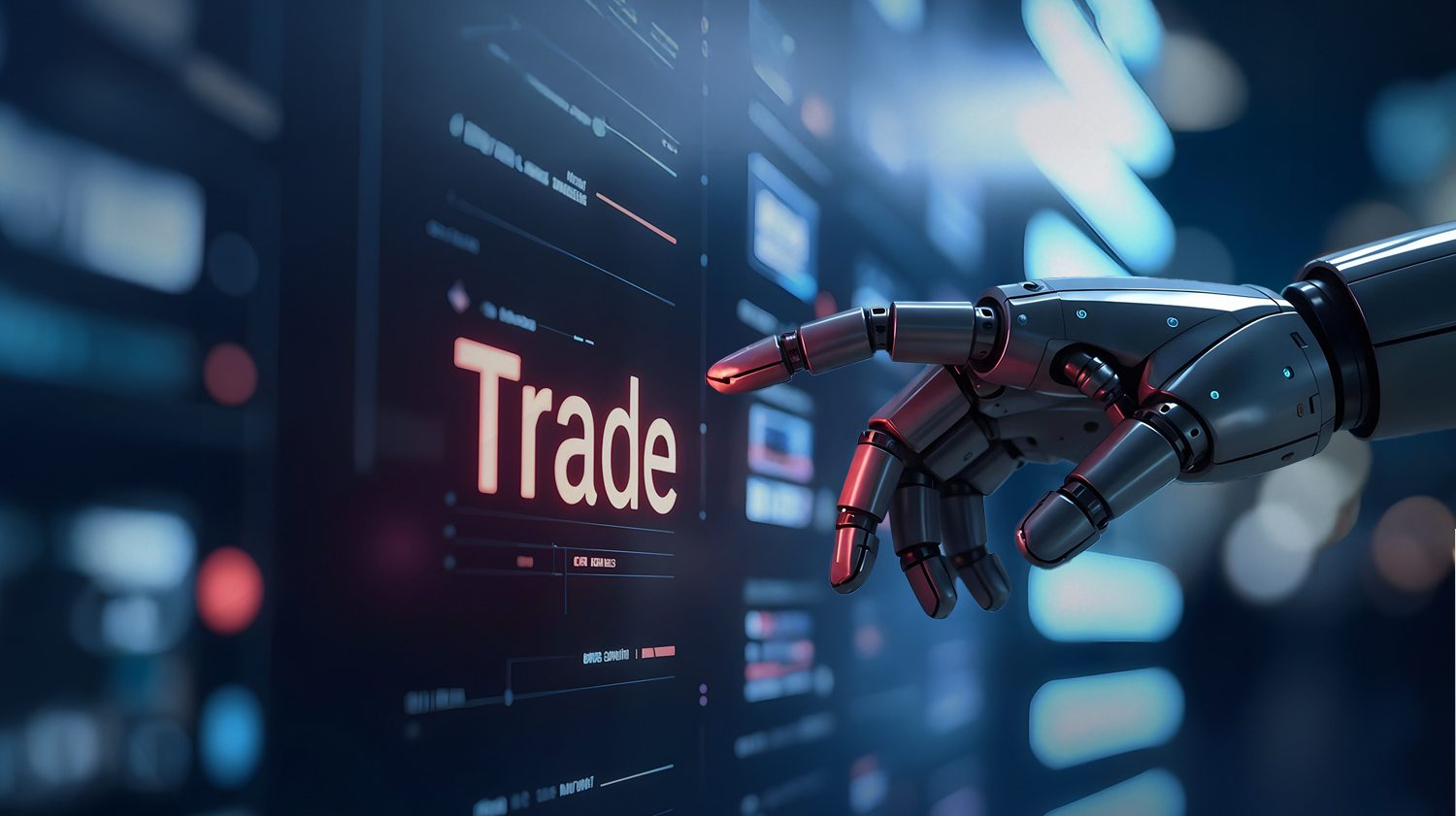Artificial intelligence (AI) is increasingly utilized in forex trading to analyze market data and execute trades. This article explores how AI is applied in forex trading, specifically through algorithmic predictions, and examines the ethical considerations associated with its use. The information is drawn from industry reports, academic studies, and expert analyses.
Table of Contents
What Is AI in Forex Trading?
AI refers to computer systems designed to perform tasks that typically require human intelligence, such as learning, reasoning, and decision-making (Russell & Norvig, 2020). AI for forex trading processes large datasets, identifies patterns, and predicts currency price movements. Key AI technologies used include:
- Machine Learning (ML): Algorithms that improve performance by analyzing historical data (Murphy, 2012).
- Natural Language Processing (NLP): Systems that interpret text from sources like news and social media to assess market sentiment (Nassirtoussi et al., 2014).
- Neural Networks: Models that process data in layers to detect complex patterns (Goodfellow et al., 2016).
These tools enable rapid analysis and trade execution, often surpassing human capabilities in speed and scale.
Algorithmic Predictions: How AI Is Applied
Forex AI is primarily used for algorithmic predictions, which involve forecasting currency price movements based on data. The following outlines its key applications:
1. Data Processing
AI systems analyze extensive datasets, such as historical prices, economic indicators, and global events, to identify trends (Kearns & Nevmyvaka, 2013). For example, an AI might review decades of currency pair data to find recurring patterns.
2. Pattern Recognition
Machine learning algorithms detect patterns in data that may not be obvious to humans (Chan, 2013). These can include technical indicators or correlations between currency pairs under specific market conditions.
3. Real-Time Decision Making
AI executes trades in milliseconds, responding to market shifts faster than manual methods (Aldridge, 2013). High-frequency trading (HFT) firms, for instance, use AI to perform thousands of trades per second.
4. Sentiment Analysis
NLP analyzes text from news and social media to evaluate market sentiment (Nassirtoussi et al., 2014). For example, negative sentiment toward a currency might prompt an AI to adjust its trading strategy.
Reported Benefits of AI in Forex Trading
Research and industry reports highlight several potential advantages of AI in forex trading:
- Efficiency: AI processes data and executes trades faster than humans, shortening the gap between opportunity identification and action (Kearns & Nevmyvaka, 2013).
- Reduced Human Error: AI follows predefined rules and data, avoiding errors tied to emotional decisions (Lopez de Prado, 2018).
- Continuous Operation: AI monitors markets 24/7, capturing opportunities outside typical trading hours (Aldridge, 2013).
- Backtesting: AI tests trading strategies against historical data to refine them before live use (Chan, 2013).
The effectiveness of these benefits depends on factors like data quality and algorithm design.
Ethical Considerations
The use of AI in forex trading has prompted ethical discussions in academic and industry contexts. Key concerns include:
1. Algorithmic Bias
AI relies on training data, and biased data can lead to skewed outcomes (O’Neil, 2016). For instance, an AI trained on stable market data may struggle during economic crises.
2. Market Stability
The speed and volume of AI-driven trading have been linked to market volatility. The 2010 Flash Crash, where the Dow Jones fell nearly 1,000 points in minutes, was partly attributed to algorithmic trading (Kirilenko et al., 2017).
3. Employment Impact
AI automation may reduce demand for human traders in data analysis and execution roles, though human oversight remains critical for strategy and ethics (Frey & Osborne, 2017).
4. Transparency
Complex AI models, especially deep learning systems, can be difficult to interpret, complicating efforts to understand decision-making processes (Goodfellow et al., 2016).
5. Accessibility
Developing AI tools requires significant resources, often limiting their use to large institutions and creating gaps between retail traders and well-funded firms (Lopez de Prado, 2018).
Summarizing
AI plays a significant role in forex trading through data analysis, pattern recognition, and rapid trade execution. Its use also raises ethical questions about bias, market stability, and accessibility. As AI technology advances, further research and regulation may address these issues.

